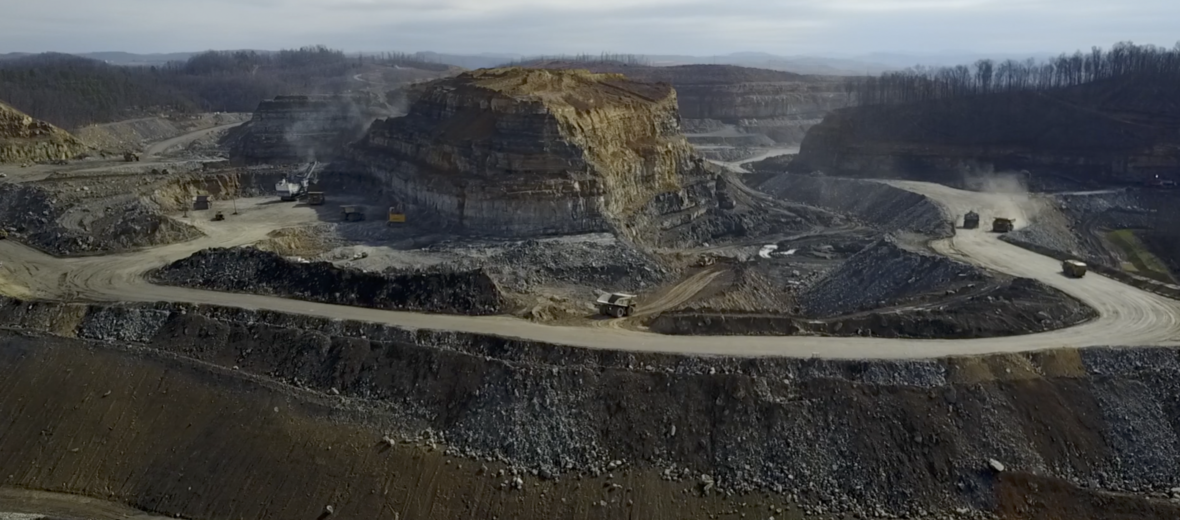
Bill would halt new mountaintop removal pending definitive health study
FOR IMMEDIATE RELEASE
Wednesday, April 3, 2019
Reposted from http://acheact.org/
Contacts:
Bo Webb, ACHE Campaign, 617-407-2721, webb.bo@gmail.com
Bob Kincaid, Coal River Mountain Watch, 304-860-0011, bobkincaid@gmail.com
WASHINGTON—U.S. House representatives today introduced the Appalachian Communities Health Emergency (ACHE) Act, H.R. 2050. The bill would halt new or expanded mountaintop removal coal mine permits until and unless the Department of Health and Human Services, upon receiving a comprehensive health study, concludes that the process poses no threat to public health.
Rep. John Yarmuth, (Ky-3), the lead sponsor of the bill, said, “Given the current political changes, we need to be doing all we can to protect our environment. Efforts are already underway to undermine access to our natural resources and compromise the health of Americans.”
Before she died of cancer, Vickie Terry, who lived next to a mountaintop removal site in Claiborne County, Tn., said,
“Coal companies are blowing up the mountains where I live. We’ve seen alarming increases in cancer and other illnesses since mountaintop removal began here, and we deserve answers. Our health is not considered in the permit decisions, even though there are more than two dozen peer-reviewed studies linking deadly health impacts to mountaintop removal. To protect the health of my family and community, we need the ACHE Act.”
One study found over 1,200 “excess deaths” annually in mountaintop removal areas, after accounting for other factors such as smoking and obesity. Another study, conducted in the lab by scientists with the Mary Babb Randolph Cancer Center, was titled “Appalachian Mountaintop Mining Particulate Matter Induces Neoplastic Transformation of Human Bronchial Epithelial Cells and Promotes Tumor Formation.”
In 2017, the Trump administration abruptly canceled a review by the National Academies of Sciences, Engineering and Medicine intended to better understand the health impacts of mountaintop removal and identify areas needing more study.
“It seems to me this beautiful American idea we call democracy would fix such a horrible idea as mountaintop removal, but sadly that has not yet happened,” said Bo Webb, ACHE campaign coordinator. “I am hopeful that the new U.S. House of Representatives will have the courage to put an end to the unjust and shameful practice of blowing up mountains directly over the top of Appalachian communities, poisoning the air that every baby, mother, father, and family breathe.”
“This historic bill represents the intersection of environmental justice and climate change,” said Bob Kincaid, Coal River Mountain Watch board president. “By abolishing mountaintop removal, we can not only protect the health of Appalachian people who have for generations been sacrificed for coal company profits, but take a bold step toward giving the children of Appalachia and the nation as a whole a better future.”
Mickie McCoy of Inez, Ky., said, “The central Appalachian Mountain range has one of the highest cancer death rates of any area, per capita, in the nation. The people of this area are tired of their land and their very lives being sacrificed for the profit of a few. People are dying! I beg you to pass the ACHE Act.”
On April 9, the House Energy and Mineral Resources subcommittee will hold a hearing on mountaintop removal and health.
One of the witnesses scheduled to testify, Dr. Michael McCawley of West Virginia University’s School of Public Health, said, “Previous health effects studies have found that mountaintop removal areas have significantly higher rates of disease. Exposure assessment work also indicates that measured air pollution levels are likely sufficient to cause those increased rates of disease. The health effects of exposure to the type of particles found are supported by dozens of independently written and peer-reviewed scientific articles that offer similar evidence, for similar health outcomes, from similar exposure levels, around the country and around the world. The ACHE Act would allow a better understanding of the effects of mountaintop removal activities not only of the air exposures, but of the water and the mining waste, each, on the people in these areas. The country owes that kind of effort to the families of the coal miners working at these mountaintop mines and to all the people who bear the burden of exposure from it.”
Learn more at www.ACHEact.org.
Download a fact sheet on the ACHE Act.
A copy of the bill can be found here.



Leave a Reply